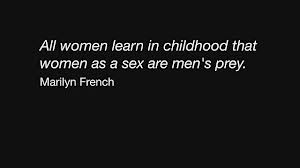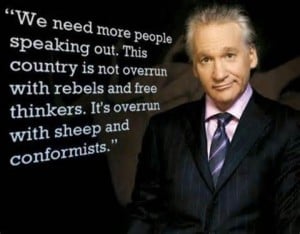What happens when a few good men decide manhood needs an overhaul?
Last month I mentioned the enlightening and sometimes shocking discussion that unfolded during the all-male panel moderated by Eve Ensler [a sold-out event at the Paley Center for Media] called “Breaking the Male Code: After Steubenville, A Call to Action.” (You can see the panel roster and bios at that link.) Our country having just last weekend celebrated fatherhood at its most idealistic, it feels like a good time to consider the greeting card gap between the glossy surface image of what makes a man a father, and the deeper reality of the task of raising our boys (and girls) within the pervasive dysfunctional social construct of what it means to be a man in the 21st century.
“Too many examples of manhood are built around the de-humanization of women,” said Tony Porter, co-founder of A Call to Men: The Next Generation of Manhood and partner with domestic and sexual violence education programs for the NFL, the NBA, The US Military Academy at West Point and the US Naval Academy at Annapolis. One of the biggest examples discussed by the men was professional sports, a world that some of the panel participants have direct ties to, and one that is notorious for bad behavior toward women. Objectification of women seems a sign of success to young boys when the men they look up to are modeling it as part of the lifestyle. The message carries on in advertising and media aimed at guys, music (Check out the Top 20 Most Misogynistic Songs, including “Bitches Ain’t Shit” by Dr. Dre featuring Snoop Dog and “Girls” by the Beastie Boys), television and film, and video games. This quickly teaches boys that females are “possessions, property for ownership, objects lacking value and lacking power, ” said Joe Ehrmann, former NFL defensive lineman for the Colts and founder of Coach for America.

“Men are taught to use women to bolster their manhood,” Porter said. They do it by exploiting women’s bodies under the popular effrontery that women exist for male sexual satisfaction, perpetuating hyper-sexualized memes or demoralizing jokes about all things feminine (i.e., weak men are labeled with terms for women’s genitalia – which, considering these deliver other humans, is probably the dumbest comparison I’ve ever heard), or trying to control and shame the sexuality, bodies and needs of women (think of all-male committees who write reproductive health legislation).
“Men are taught [by older men and social norms] not to have an interest in the experiences of women,” Porter continued. “If they demonstrate a genuine interest, they are not ‘real men’. The only really acceptable interest in women is as sexual conquest.” He asked the crowd to think about how we often hear guys describe girls they are “interested in,” which might sound like this: “I want to hit that. I need a piece of that. I’m going to tear that up.” Not: “I really like her, she’s smart/cute/human and I want to spend time with her.” Their interest is articulated like violence against a thing that will happen whether the thing wants it or not, not a feeling toward a person whose mutual respect and admiration they want to earn.
“Men have to take their minds off ‘remote control’ and begin to look at themselves, know and understand what they’re doing, start making conscious decisions,” Porter says, about how men talk about and relate to women, if ever we are to imagine a society without rape and sexual violence. Porter helps men recognize that backward and crude assumptions, exploitative and belittling behaviors and disrespectful language used to describe females sink in to the psyches of boys at a alarmingly early age, recycling the rape culture at intensifying generational intervals and creating an increasingly hostile environment for girls and women. For example, now video and cell camera technology, social media and meme sharing, and streaming mobile porn all send dangerous cultural messages at dizzying speeds, constantly enveloping the attention and minds of mass audiences comprised of more vulnerable ages than ever. (Google “up-skirting” and you will find multitudes of sites that make money off of unauthorized videos of unwitting women’s crotches, buttocks and breasts sneakily filmed in public places.)
Surprisingly, the entire panel was adamant that the cultural main-streaming or normalizing of porn is a big, dangerous problem that needs to be addressed among boys, teens, and adult men, since the Internet deluge often sets them up with an inability to moderate sexual indulgences or set limits for what is appropriate in reality with a real woman. It also impresses an unhealthy interpretation of female sexuality and a false depiction of female sexual availability and agreeability. The men agreed with Ensler’s reminder that sneaking porn outside of parental guidance (or even with permission) is often a little boy’s first, unforgettable experience of women and sexuality, creating that lasting impression that women are de-humanized, willing commodities for his pleasure, sexual playthings and props that don’t move or speak. And in the age of video and live Internet porn, women actors only say and do what men want to hear and see, teaching boys that women are pre-destined to fulfill their directed fantasies, and teaching girls that succumbing to this expectation and control is what makes them “desirable, beautiful, cool, popular, sexy and wanted” – all things teen girls – and sadly even grown women – are just dying to be, out of a very human need for attention and love.

And in turn, they said, boys learn to devalue the sexuality of women. “Men get to be sexual and that’s okay, but if a woman is sexual you can do anything to her, because she has no value,” was what the panel recalled with disgust in a consensus about the terrible messages they got from culture as boys and young men. “Men can use women for their sexual purposes, but women can’t have it for their own.”
Porter said it is lamentable that “boys are taught in many ways that women are here for our comfort, pleasure and entertainment, on so many levels.” Women are either supposed to take care of you, feed you, clean up for you, put a bandaid on your scraped knee…or fulfill your sexual fantasies, be there when you are ready for some action and satisfy your physical needs. Based on these two most prominent presentations in popular culture, it is tough for boys to find and see enough examples in general culture of women valued, appreciated and desired as anything in between those poles. Do they catch a glimpse a powerful female politician on CNN; see Mariska Hargitay kicking ass on Law & Order SVU; or know smart, accomplished, self-possessed and self-respecting women in real life? Maybe so, but those unfortunately aren’t the women who get talked about in male-dominated entertainment culture or circulated in male-targeted media; their photos and stories don’t go viral on Twitter or get posted on Facebook. What young men are inundated and lured into interaction and purchases with is mindless kitsch videos of Kate Upton giggling and jiggling or immature girls getting grotesquely manipulated on Girls Gone Wild. Even mainstream news attracts the male supporter this way – have you looked at The New York Post lately? It’s a sensationalist “boobs and ass assortment” excuse for journalism. That’s the power – and the self-perpetuating exploitative danger – of the current male narrative and social norm.

But the dominion and control boys are taught they have over exposed-and-sexualized-females-on-demand is often matched on the other end of the spectrum with an overbearing need to control certain women’s purity and perfection, but in ways that correlate back to a male realm of rulership. Think about the hypocritical control exerted over a young woman with a sibling who insists on playing the “big, tough brother” role, intimidating the boys who want to date his sister (as if family honor depends on his over-bearing protector identity), while claiming free reign to throw a few dollars at other men’s sisters and daughters for a lap dance or a blow job in the back, or treating the women he dates himself in whatever domineering way suits him. Or how a young man may defend or dote on his mother or grandmother (care taker), then go to his room to jam to music that anthem-izes women as animalistic, disposable “bitches and ho’s” or treat his young girlfriends with disrespect or even violence. Or how there is still such a thing as a “marrying kind of girl” that is separate from the “sluts” a guy may use up before settling down (sow your oats, son!). Isn’t that originally what strippers at bachelor parties signified at the most basic level? Dude, better get your cravings for all the other readily-available naked and willing women you can put your hands on out of your system the night before you wed, so that you can bear being faithful to your wife.
Here’s the thing: the men who have mothers, sisters, daughters, nieces and wives that they protect for proximity’s sake are the same men who exploit and abuse the mothers, sisters, daughters, nieces and wives of other men. Yet the biblically and socially imposed female duality of virgin vs. prostitute and saint vs. original sinner – closely monitored by the power held in the male duality of protector vs. predator – keeps women trapped in a dangerous position. Dave Zirin, sports writer for The Nation, confirmed that the Madonna/Whore complex is still a struggle in the modern male mind, and Joe Erhmann spoke up to say he still daily, plainly sees the Patriarchy and male control of what women do – whether offering up male fantasy sex on demand or suppressing natural female sexuality on demand – as alive and well. One of the main points made at “Breaking the Male Code” was that it is men themselves who must change the culture of exploitation and violence toward women. And it is only men who truly can.
But the big problem is that “there is confusion over what it means to be a man,” says Zirin. Boys are mindlessly encouraged look up to the wrong people, ideals and goals, and “men are taught there will be social consequences if they stand up for women, they know there is a price.” He compared the way he is skewered at times for being a Jew who stands up for the rights of Palestinians. Men who speak up for women or tell other guys to stop harassing them are demonized. “The men that [guys] look up to need to start carrying the weight for this, take accountability, for instance, that there is a connection between rape culture and football [i.e., Steubenville], have the NFL donate millions for rape education in school,” Zirin said.
Erhmann attributed the confusion to a “lack of moral clarity and lack of moral courage, that fact that empathy is repressed in the raising of men.” The panel agreed that little boys are often threatened to stop crying and to never cry again, not to show emotion lest they reveal their doubt, pain and vulnerability. As a consequence, “there is an issue of men not feeling safe, unable to ask for help, a hug, comfort, or [the opportunity for] expression, especially with other men,” said Jimmie Briggs, Founder of the Man Up Campaign. “So there is a fear of being exposed that can be a catalyst for acting out violently or with misogyny.” Erhmann agreed, noting that “much of male anger and violence is unprocessed grief.”
Boys are taught that they must win at all costs; that masculinity equals their size, physical strength, and athleticism, or else they “don’t have what it takes to be a man.” They learn that their self-worth is only equal to the amount of success they achieve in the normative terms of money, networks, and above all, power in whatever business, relationships or sports they engage.
“The scariest thing for a man to hear is for someone tell him be a man“, Ehrmann said. “And if you don’t understand your own feelings and emotions, you’ll never understand those of others. ‘Be a man’ needs a totally new meaning. Sports is the first place this has to change.”
The panel agreed that unfortunately, boys are also taught that sexual gratification is a man’s right.
To start reversing the rape culture, “putting [the female’s] thoughts and her agency front and center is what we have to teach boys plainly,” Zirin said. The panel agreed that boys are not explicitly taught that girls have their own agency or rights to their own bodies and minds and choices, so the cultural messages about sexualized, available women are louder. (Hell, girls often aren’t explicitly taught that we have our own agency and sense of control over our destinies, so culture is louder in our ears too!)
“Masculinity should be defined as willingness to stand up for women, stand with them,” Zirin asserted, and this kind of male leadership would change society. “The rape culture is [not just the Steubenville rape act, but it’s also] the 50 people who watched and said nothing. It’s the coach who winked and said it’s not a big deal. It’s the first judge [on the case] who had to be admonished. It’s all the people who threatened the victim. Rape culture is our culture. It’s the norm of unchallenged violence against women.”
Even the women you hear putting forth and backing up false manhood, and saying the rape culture isn’t real, are indoctrinated and tricked into acceptance of the old male norm. “You can look barely underneath [the surface of those girls and women] and the roots are male domination; men are the benefactors behind that [dangerous] understanding they are perpetuating,” Porter added. (Serena Williams may be the most famous example of late.)
“Our culture has failed the victim. But it has also failed young men [in many ways, including] advertising, violence and sex [framed] as male bonding moments,” Briggs said. “We have to let boys show sympathy, emotions and feelings, instead of telling them to suck it up and be a man. We keep seeing the same thing over and over: a girl is raped, no one believes her, the town tries to cover it up, and especially if it involves athletes who rape, they may never be held accountable. This is a human rights issue.”
“We have to address shame in men, Erhmann said. They feel shamed when they are weak, when they are not dominant. Shame thrives in silence and secrecy. Men must talk to each other.” Instead, the shame has to start being placed on the aggressiveness and violence, the insensitivity and brutish behavior, the diminishment and disparaging of women for pleasure and dominance.
“I learned more about being a man from my wife than from other men,” said Peter Buffett, Warren’s son, who runs the Novo Foundation to empower adolescent girls with his wife Jennifer. The panel agreed it’s time for men to model and teach one another how to proudly cultivate an “authentic male soul.”

“Power concedes nothing without a demand,” said Zirin, and men have to demand a new, different male culture, have to convince the powers that be to pull the pillars out from under the old, oppressive structure. Porter summed it up well: “[In my life,] women made big investments in me. Women can only respond to the crimes [committed against them]; men alone can stop it. My liberation as a man is tied to the liberation of women.”
Maybe the question is not just “who’s the man?” but “who’s the real man?” The future depends on who decides that and reinforces it. But maybe it’s also worth asking, “who’s your daddy?” When it comes down to it, our collective culture fathers our boys, fathers our girls, fathers the notion of what manhood is. It’s a complex system to overhaul, but with the kind of tenderly tough, thoughtfully outspoken, unabashedly confident and authentic male strength I witnessed on the panel of “Breaking the Male Code,” I know things will change.

















